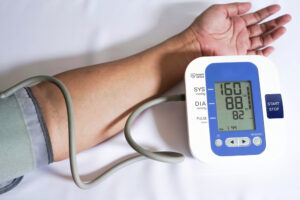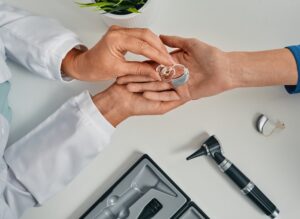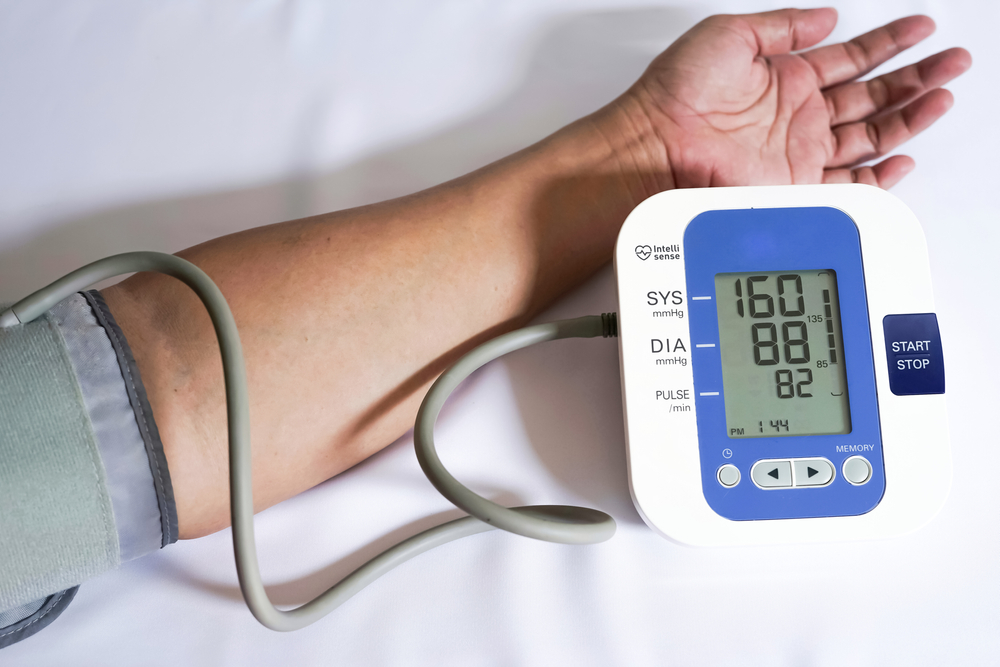Did you recently get a dental implant? You should buy an electric toothbrush!
For those who lose or severely damage a permanent tooth, a dental implant is a solution that can restore the function and appearance of a healthy smile. This option results in a durable and more natural-looking artificial tooth than other alternatives, such as bridges or crowns. While the treatment process can take a while, most patients find they can go back to a normal lifestyle after recovery.
It’s always important to maintain good oral hygiene, but so much more so after you’ve received a dental implant. That’s why most dentists recommend their patients buy an electric toothbrush, which tends to be superior to manual ones.
Studies show that electric toothbrushes are more effective at cleaning your teeth than manual ones. So, if you don’t already have one, consider making a purchase, especially if you’ve recently gotten a dental implant. Now that you have it, it’s important to protect it from failure or damage, and maintaining proper practices will help you do that.
Some patients believe they have to give up using an electric toothbrush now that they have dental implants. The answer is no; you don’t have to switch to a manual toothbrush unless it’s a full-mouth implant. Electric toothbrushes with soft or ultra-soft bristles are gentler on the gums, but there’s no reason to sustain the fact that using an electric model will put the success of your implant at risk.
In fact, buy an electric toothbrush, and you’ll boost the likelihood of success by reducing plaque! The most important thing is to choose a brush that works with your implant without compromising its effectiveness or putting your health at risk in any way.
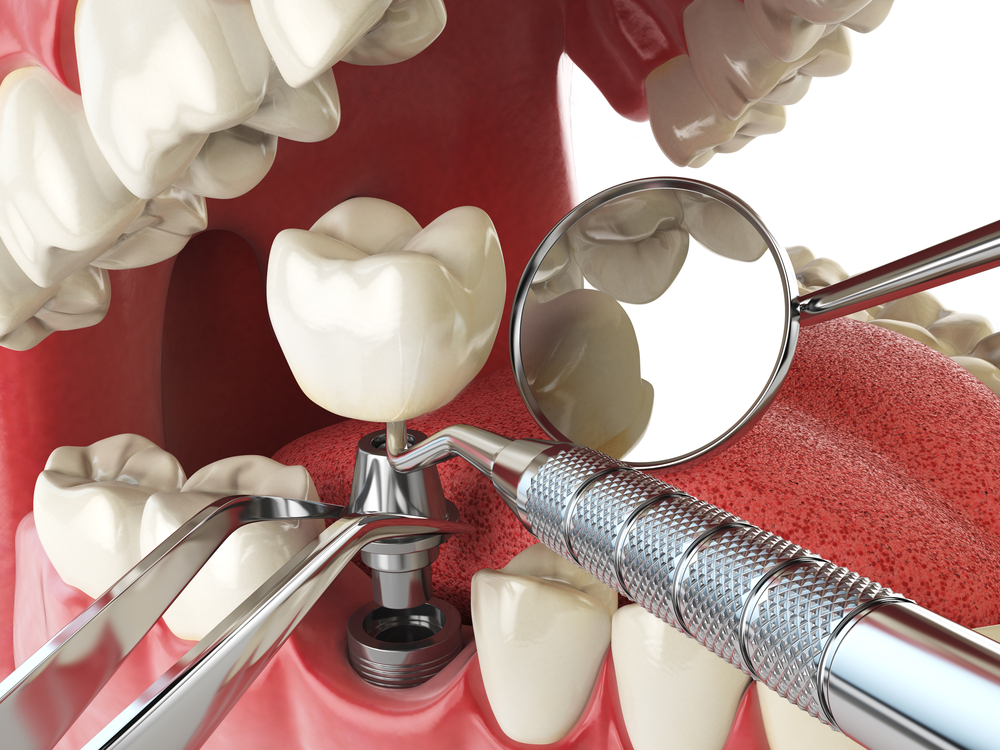
Patient concerns about the dental implants
Before we talk more about why you should buy an electric toothbrush, let’s take a look at some of the most common concerns people have when it comes to dental implants.
Many people who get these implants are worried about the screws loosening at some point. However, this is unlikely if the patient follows instructions for follow-up care and the procedure is done well by an experienced professional.
Studies have shown that electric toothbrushes, as well as sonic ones (which produce small vibrations in the mouth), are actually helpful in preventing tooth decay, gum disease, and bone loss. This kind of stimulation is more likely to keep your implant healthy when performed correctly, so here’s another reason why you should buy an electric toothbrush.
The importance of flossing and proper brushing
Just as with natural teeth, dental implants should be flossed and brushed on a daily basis. While your dentist may ask you to schedule some initial appointments for evaluation, you should soon be able to go back to regular checkups every six months.
Brushing your teeth after getting a dental implant, even with the abutments in the healing process, isn’t an issue, but if you want to buy an electric toothbrush, you should not use it for two months after your implant surgery. Stick to the manual one and be gentle with brushing the surgical areas.
In fact, brushing your teeth is important after dental implant placement. The cleaner you keep the surgical site itself and your mouth altogether, the lower the risk of infection. Keep in mind that brushing the surgical site itself should be done extremely gently, allowing the antibiotic mouth rinse to do most of the cleaning work in that area.
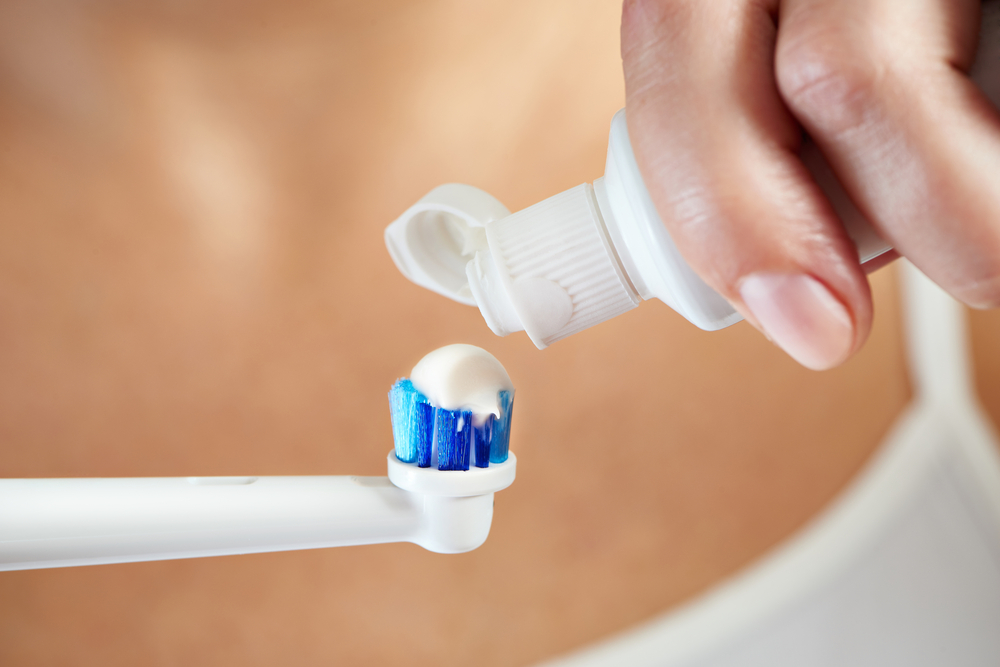
Benefits of electric toothbrush use
If you want to buy an electric toothbrush and want to know more about this device, you’re in the right place! Although a classic, manual toothbrush does a good job of keeping your teeth and gums healthy, electric ones may be a more favorable alternative. These devices are better at stimulating soft tissues and circulating toothpaste and fluids into tight places.
Electric toothbrushes can replicate anywhere from 2,500 to 6,500 brush strokes per minute, while sonic versions move at a rate of about 30,000 strokes per minute.
Proper technique for healthy and safe home cleaning
Most dental professionals recommend using a regular toothbrush during the first several weeks after implant surgery. As already stated, this practice can help prevent inflammation of sensitive tissues during the healing process. However, once the area is properly healed, an electric toothbrush is a great choice for routine home cleaning.
If you hadn’t used one before getting the dental implant, now’s the time to buy an electric toothbrush! But don’t forget that you should still be careful to apply only gentle pressure using light, sweeping movements. Aggressive brushing can lead to enamel loss, gum irritation, and damage to the implant.
Don’t forget that regular flossing is also very important for maintaining good oral hygiene. In addition, you may benefit from using an oral irrigator to clean beneath the gum line.
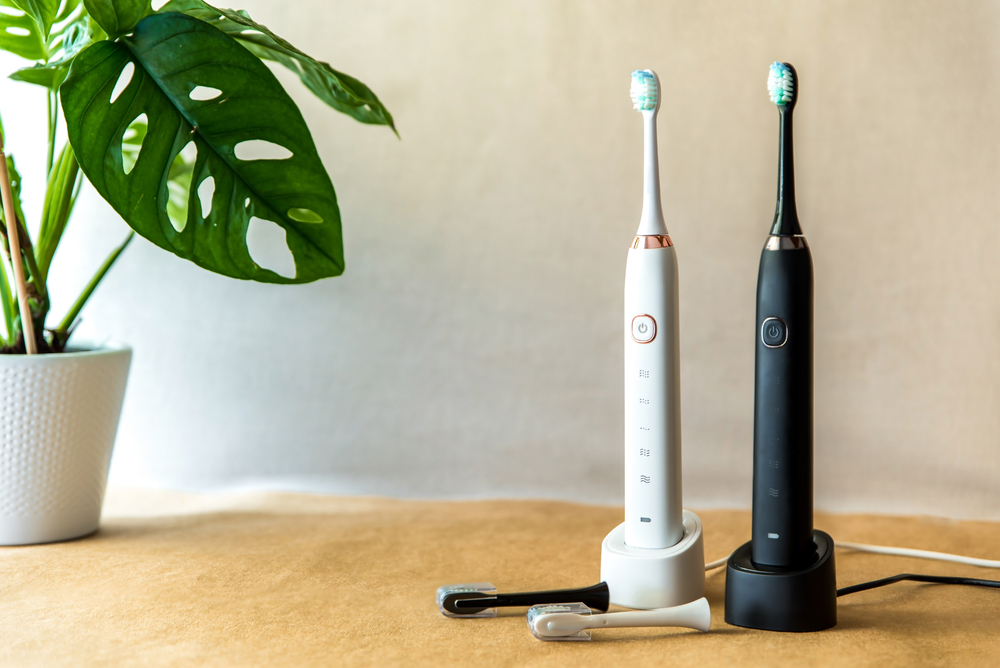
What to look for in an electric toothbrush after getting a dental implant
If you’ve just gotten a dental implant and you’re looking to buy an electric toothbrush, there are several things you should keep in mind when choosing the device.
Power source: Most electric toothbrushes are powered by batteries, but there are some models powered by mains electricity. If you buy an electric toothbrush that falls into the latter category, make sure it’s compatible with the US power supply.
Brush head: Most electric toothbrushes feature a range of special brush heads. These are specially designed to provide a more specific type of cleaning. Before you buy an electric toothbrush, it’s important to know that not all brush heads are interchangeable. Some models feature specific heads that can only be used with that particular version.
However, many popular brands (like Philips Sonicare and Oral-B) offer different replacement head options that can be used with multiple versions within the same brand. So, when buying head brushes, it’s important to ensure the replacement head is compatible with the base handle.
Features and modes: The most basic electric toothbrush has a built-in timer and a single cleaning mode. More advanced options have multiple modes, such as gum stimulation and special features designed for cleaning implants. Sonic and pulsing are additional features of an oscillating, rotating, or rotating-oscillating brush.
Battery length: This is a significant consideration you should have in mind when you buy an electric toothbrush. Most popular models have permanent, internal batteries that run out of energy after a certain amount of usage, which means you have to recharge your electric toothbrush every so often.
Depending on the model you have, it may take an average of about two weeks before your battery runs out of energy. Your electric toothbrush will come with any information you may need, including what the average time is that it can hold a charge.
Conclusion
Dental implants are a great and effective solution for tooth replacement. While follow-up care during the first weeks after the surgery may differ from normal habits, you can usually return to normal brushing shortly thereafter.
It’s always prudent to consult your dentist for specific instructions. While electric toothbrushes are often a great choice for daily care due to their ability to clean efficiently and thoroughly, keep in mind that you may have to stick with using a regular toothbrush for a couple of days after surgery.
If you want to buy an electric toothbrush, Amazon has plenty of options to choose from!
You may also want to read 6 Genius Home Cleaning Gadgets for Seniors.




